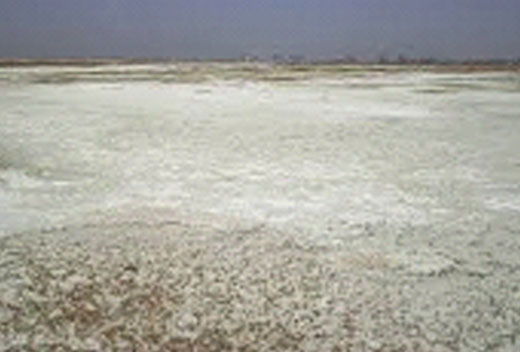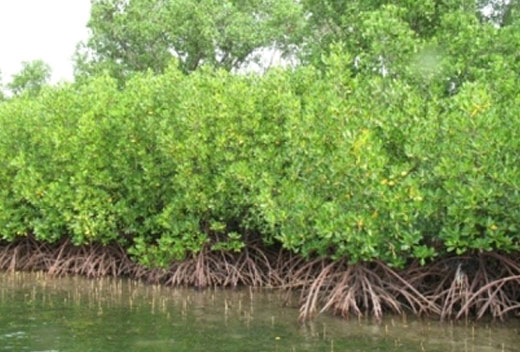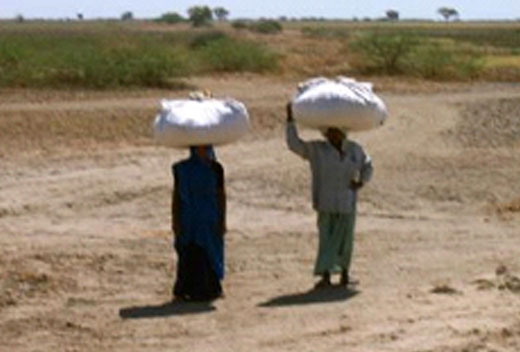Condition of the Region
The Bhal Region Challenges and Opportunities
Community-Led Innovation: Rainwater Harvesting for Water Security
Spanning over 500 villages across the districts of Ahmedabad, Anand, Kheda, Surendranagar, Botad, and Bhavnagar, the Bhal region derives its name from the Gujarati word “Bhal”, meaning “forehead”—a poetic allusion to its vast, open plains. While the region holds a deep cultural legacy, it continues to grapple with intersecting ecological, social, economic, and political challenges that threaten the dignity and survival of its people. Mahiti Trust has remained committed to unlocking the region’s transformative potential through inclusive and ecologically sensitive interventions that prioritize the agency of the most underprivileged.


Geo-Climatic and Environmental Vulnerabilities
Situated along the Gulf of Khambhat, the Bhal region is ecologically fragile and prone to extreme climatic events—including recurring floods, droughts, cyclones, and saline water ingress. The coastal plains suffer from high soil salinity, erratic rainfall (500–600 mm annually), and increasing sea-level rise, all of which significantly reduce agricultural productivity and threaten drinking water sources. Once covered with dense mangroves and rich biodiversity, the region has witnessed rapid deforestation and environmental degradation. As a result, traditional livelihoods are under strain, forcing many to migrate in search of sustenance. Mahiti Trust responds through climate-resilient agriculture, rainwater harvesting, and ecosystem restoration, enabling communities to rebuild livelihoods while preserving natural resources.
Social Realities: Inequality and Marginalization
The Bhal region’s social landscape is shaped by deep-rooted caste hierarchies and patriarchal norms. Dominant communities such as Darbars and Rajputs hold significant control over land and local governance, while underprivileged groups—Talpada Kolis (27%), Bharwads, Devipujak, and Dalits (10%)—face systemic exclusion from land ownership, dignified work, and essential services. Women and girls from these communities often endure early marriage, limited education, and economic dependency, compounded by exploitative practices like reverse dowry. Mahiti Trust is still working at the grassroots to dismantle inequities, promote women’s leadership, and foster social inclusion through awareness, advocacy, and legal empowerment.

Livelihood Insecurity and Economic Distress
Agriculture, animal husbandry, and fishing are the primary livelihoods—but they are increasingly unsustainable due to climate variability and lack of irrigation. Most underprivileged families, especially Talpada Kolis and Dalits, rely on seasonal migration and informal labor, with some children drawn into hazardous industries like diamond polishing. With monthly per capita incomes often below ₹250–300, families face chronic poverty, indebtedness, and financial exclusion. Thus, Mahiti Trust trying to addresses these constraints through sustainable livelihood initiatives, microfinance, vocational training, and entrepreneurial support, with a special focus on women and youth.
Barriers to Participation in Governance
Despite comprising a significant share of the population, underprivileged communities remain underprivileged in local governance. Deep-rooted caste hierarchies continue to influence decision-making, limiting the voices of disadvantaged groups. While the 72nd Constitutional Amendment ensures 30% representation for women in local bodies, many women Sarpanches lack genuine authority. Mahiti Trust continues to address these structural barriers by fostering grassroots leadership, enhancing governance literacy, and mobilizing communities—ensuring that governance becomes truly participatory, inclusive, and responsive to all.
A Vision for Inclusive and Sustainable Development
The Bhal region stands at a pivotal moment—confronting entrenched challenges, yet brimming with the potential for regenerative change. With its deep community ties, Mahiti Trust is working to shift the paradigm: from survival to self-reliance, from marginalization to leadership, and from degradation to ecological renewal. Through people-centered strategies, Mahiti Trust is nurturing a future where the Bhal region thrives—grounded, resilience, and the voices of its people.
